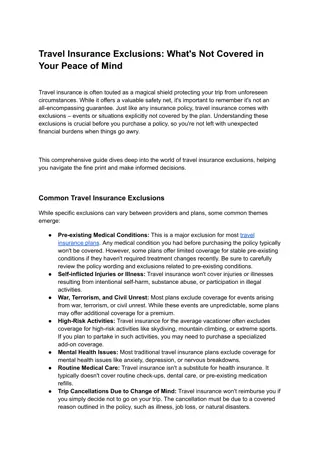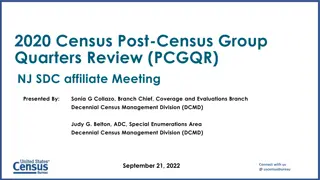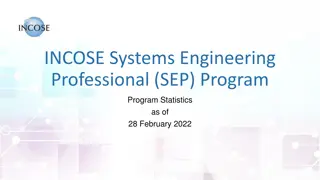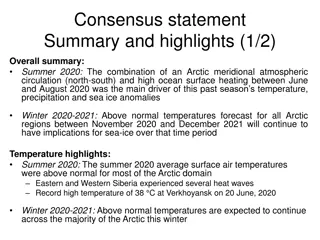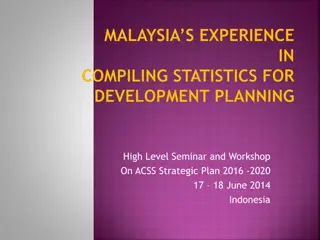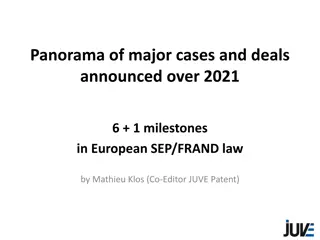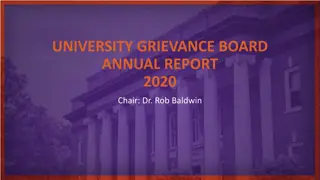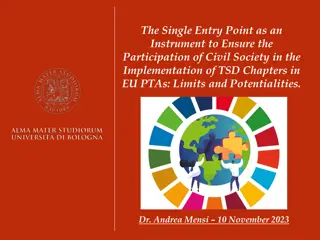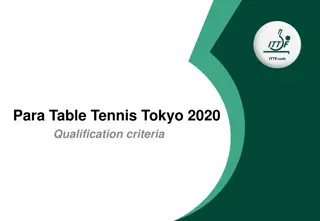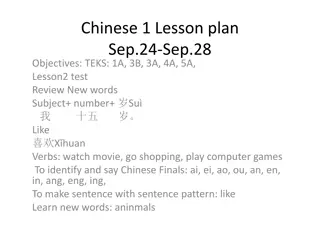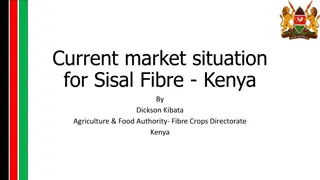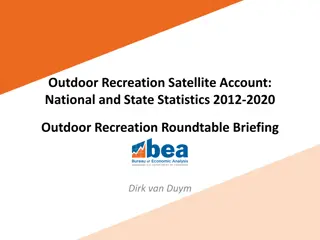Overview of VA Updates and Interactive Functions for Participants
In this presentation, Amanda Berry discusses recent updates at the VA, highlights high-impact court decisions, and provides guidance on ensuring smooth participation in virtual sessions. Topics covered include functions checks, troubleshooting tips, accessing user interactions, and etiquette during online presentations. Participants are encouraged to engage through virtual hand-raising, chat features, and asking questions. The agenda includes key court decisions such as Ward and Neal v. Wilkie, Fears v. Wilkie, Miller v. Wilkie, Delrio v. Wilkie, and Walsh v. Wilkie.
Download Presentation

Please find below an Image/Link to download the presentation.
The content on the website is provided AS IS for your information and personal use only. It may not be sold, licensed, or shared on other websites without obtaining consent from the author.If you encounter any issues during the download, it is possible that the publisher has removed the file from their server.
You are allowed to download the files provided on this website for personal or commercial use, subject to the condition that they are used lawfully. All files are the property of their respective owners.
The content on the website is provided AS IS for your information and personal use only. It may not be sold, licensed, or shared on other websites without obtaining consent from the author.
E N D
Presentation Transcript
Whats New at the VA Amanda Berry September 2020
Functions Check Before we get started, let s perform a functions check to ensure everyone can participate and follow along. Ensure that you re in a quiet space in your home or office Ensure that your computer is charged and/or plugged in. Next, please keep your microphone on mute unless you are speaking. To mute or unmute your microphone, click on the microphone icon in the lower, left corner of the screen. Click on the icon to mute or unmute You can start or stop your video at any time by clicking on the video icon in the lower, left corner of the screen. Click on the icon to start or stop. 3
Functions Check If you re having trouble hearing the presentation, first ensure that your volume is on and turned up. Then, if using headphones, check the settings by using the arrow next to the microphone icon to ensure that you re using the correct settings for headphones. To use the chat feature, click on the chat icon at the bottom, middle of the screen. You can choose to chat with everyone or a specific person by using the arrow. 4
Functions Check To access user interactions, click on the Participants icon The interactions tool bar will appear at the bottom, right side of the screen. You can virtually raise your hand, answer yes or no questions from the instructor, or notify the instructor that they are moving too fast or too slow. Additional options are accessed by clicking on the more button. You can virtually clap, like or dislike, as well as other options. 5
Functions Check If you have a QUESTION during the presentation, please enter a question mark (?) or enter your question into the chat box and the presenter or facilitator will address your question. PLEASE WAIT UNTIL YOU ARE RECOGNIZED BEFORE UNMUTING YOUR MICROPHONE If you re having technical difficulties please contact the Technical Advisors listed in the agenda. If you need a comfort break, please do so and return as soon as possible. Please remember, these sessions will be recorded for future use. Everything on the internet lasts forever! 6
Hi there! Nice to meet you! Amanda Berry
Agenda High Impact Court Decisions What are they? Ward and Neal v. Wilkie, June 14, 2019 Fears v Wilkie, August 12, 2019 Miller v. Wilkie, January 16, 2020 Delrio v. Wilkie, September 9, 2019 Walsh v Wilkie, February 24, 2020 Pop Quiz! 8
What are Court Cases and Why are they important? Court Cases started as a claim, went to appeals, passed the Board of Veterans Appeals, went to Court of Veterans Appeals (outside VA), then was appealed to the Federal Circuit Court. A court case is the final judicial interpretation of the Code of Federal Regulations (CFR) Court Case Sets precedents tells VA how to apply the rules of law. 9
CourtDecisions High Impact Ward and Neal v. Wilkie, June 14, 2019 Secondary service connection based on aggravation does not require permanent worsening Fears v. Wilke, August 12, 2019 Background on what constitutes good rationale in medical nexus opinions, how they would use this to challenge inadequate VA opinions. Miller v. Wilkie, January 16, 2020 C&P Examiners Must Consider Lay Testimony Delrio v. Wilkie, September 9, 2019 VA Adjudicators are to Determine Unemployability Walsh v Wilkie, February 24, 2020 Disabilities may be linked to already Service Connected Disabilities through an Intermediate Step 10
Ward and Neal v. Wilkie, June 14, 2019 What the Case is about: An oldie but goodie!! Mr. Ward is service connected (SC) for a total knee replacement, and alleged that his non-service connected (NSC) bilateral hip condition and back condition resulted, at least, in part, from stress caused by his service- connected disabilities. Mr Neal appealed that his NSC low back condition resulted from his service-connected left knee replacement. 11
Ward and Neal v. Wilkie, June 14, 2019 The argument: The Board of Veterans Appeals (Board) remanded both cases for examinations with medical opinions to address whether it was at least as likely as not that a service-connected disability aggravated a NSC disability. he Board defined aggravated in these cases as permanently increased in severity beyond the natural progress of the disorder or permanently made worse beyond the natural progression of the disability. The Board denied Veteran Ward s case in April 2016 and Veteran Neal s case in March 2017. Sound familiar? 12
Ward and Neal v. Wilkie, June 14, 2019 The argument: The Veterans argued before the Court that the permanent worsening standard is inconsistent with the governing statute as construed in Allen (another presidential case) and with the implementing regulation. The Secretary, defining permanence as measurability, argued that any increase in disability must be measurable to compare it with the baseline severity of the NSC condition to establish Allen NSC aggravation under 3.310(b). 13
Ward and Neal v. Wilkie, June 14, 2019 38 CFR 3.310 (b): Aggravation of NSC disabilities. Any increase in severity of a NSC disease or injury that is proximately due to or the result of a SC disease or injury, and not due to the natural progress of the NSC disease, will be SC. However, VA will not concede that a NSC disease or injury was aggravated by a SC disease or injury unless the baseline level of severity of the NSC disease or injury is established by medical evidence created before the onset of aggravation or by the earliest medical evidence created at any time between the onset of aggravation and the receipt of medical evidence establishing the current level of severity of the NSC disease or injury. Are you still reading? I am not. 14
Ward and Neal v. Wilkie, June 14, 2019 The outcome: The Court concluded that the permanent worsening standard has no application in cases involving an incremental increase in disability of a NSC condition proximately due to or the result of a S/C disease or injury. The Court also determined that to the extent that the Secretary employed the word measurable in its primary meaning, requiring a numerically quantifiable assessment, that requirement is also not present in the governing statutes or in the implementing regulation. 15
Ward and Neal v. Wilkie, June 14, 2019 What this means to your Vets: Hot tip: DONT FORGET PAIN. Painful motion is subject to the minimum compensable rate for a major joint. (38 CFR 4.59) 16
Question: Have you used this since the last time we talked about it? 17
Fears v. Wilkie, August 12, 2019 What this case is about: Mr. Fears served in the Navy from February 1976 to January 1980. He filed for service connection for hepatitis in December 2009. The regional office (RO) denied the claim and he appealed to the Board. The Board, in May 2014, remanded the case for a new medical opinion concerning the etiology of the Veteran s hepatitis and instructed that it be conducted by an appropriate examiner (preferably a hepatologist). Etiology: cause of disease! 19
Fears v. Wilkie, Augus12, 2019 What this case is about: In July 2014, Dr. Wilhelm, a VA medical examiner, provided an opinion concluding that the Veteran s hepatitis was most likely caused by post- service drug use, rather than the claimed exposure from in service risky sexual behavior or from air gun inoculation. He also noted that, according to medical literature, air gun inoculation is not highly correlated with hepatitis transmission and that the Veteran s in-service lab results did not show hepatitis and opined that the possible hepatitis detected in the Veteran s 1976 blood donation may have been caused by a gamma globulin shot given to prevent hepatitis. 20
Fears v. Wilkie, August 12, 2019 What this case is about: The Board, relying on Dr. Wilhelm s opinions, denied the appeal in April 2017. The Board also found that the RO had substantially complied with its remand order that a new medical opinion be provided, even though Dr. Wilhelm is not a hepatologist. The Veteran made no argument challenging Dr. Wilhelm s competence before the Board. 21
Fears v. Wilkie, August 12, 2019 Argument: After being denied the Veteran appealed that Board erred in denying service connection because it was precluded from relying on Dr. Wilhelm s medical opinion because of the examiner s litigation history. Dr. Wilhelm had been previously discharged from an Army medical residency program. He appealed the Army decision, which was upheld by the Untied States District Court for the District of Columbia. Mr. Fears argued that this judicial proceeding, combined with news concerning Dr. Wilhelm s possible role in the mishandling of examinations at a VA facility, raised the issue of the examiner s competence, which excused the Veteran s admitted failure to challenge that competence before the Board. 22
Fears v. Wilkie, August 12, 2019 Outcome: The Court provided judicial precedents concerning the presumption of a VA medical examiner s competence, which focused on cases where no objection to competence was made below the Court. The Court found that the facts of the case did not rise to the level sufficient to rebut the presumption of competence without a challenge from a claimant as in Wise v. Shinseki. The Veteran hoped to fit into the Wise exception, which recognized a limited exception to the requirement that claimants expressly challenge VA s selection of a medical examiner before the Board, which relieves claimants of the requirement where there are facially obvious issues of competence. In Wise, the medical examiner made an explicit admission of incompetence concerning her qualifications in rendering a requested medical opinion. 23
Fears v. Wilkie, August 12, 2019 Outcome: The Court returned to the default rule that the Veteran needed to object to Dr. Wilhelm s competence before the Board before doing so before the Court, which he failed to do: thus, the Board s reliance on Dr. Wilhelm s opinions was not clearly erroneous, as the absence of an objection from the Veteran left nothing in the record to raise the issue of competence. Thus, there is no new impact warranting regulatory revision or Manual change. SO MANY WORDS. 24
Fears v. Wilkie, August 12, 2019 What this means for your Vets: Unless the examiner specifically makes an admission of incompetence (as in Wise), you cannot rebut the presumption of competence without a challenge from the Claimant. The Court concluded that the Veteran failed either to request information about the examiner s qualification before the Board, or claim incompetence of the examiner before the Board. Bottom Line: In support of your Vet's appeal, make a request for the Veterans record to identify the examiner and their credentials. If you are able to locate any information to rebut their competency, this information must be presented to the Board in order to rebut the examiners competence. This cannot be done in hindsight (with the rare exception of self incompetence as in Wise.) 25
Miller v. Wilkie, January 16, 2020 What the case is about: Mr. Miller served on active duty from June 1988 to July 1994. In April 2011, he submitted service connection claims for joints stiffness, fatigue, and stomach illness. Following an April 2012 VA examination, the regional office (RO) denied service connection for gastroesophageal reflux disease (GERD) and fatigue. The Veteran submitted a Notice of Disagreement that included a new claim for service connection for a bilateral foot disability. The Board, in December 2016, remanded the foot, GERD, and fatigue claims, and directed that new examinations be undertaken. The examinations were undertaken in March 2017. 27
Miller v. Wilkie, January 16, 2020 What the case is about: The examiner opined that the condition was unrelated to service because the in-service symptoms resolved, and the Veteran was not treated for additional gastrointestinal (GI) issues until 2009. For the bilateral foot disability, the examiner opined that it was unrelated to service because it did not bother the Veteran in service. In both opinions, the examiners did not acknowledge the Veteran s statements that he had foot pain and GI issues since service and had self-medicated for both problems while in service. The Board denied service connection for a bilateral foot disability, GERD, and chronic fatigue syndrome to include as caused by an undiagnosed illness. The Board found that VA had satisfied its duty to assist, in part, because the VA medical examinations were adequate. 28
Miller v. Wilkie, January 16, 2020 Argument: The Veteran argued before the Court that his case should be remanded because the VA medical examiners failed to address his statements of foot and GI problems and self-medicating since service. He asserted that the Court should reverse the Board finding that VA satisfied its duty to assist because VA had provided inadequate medical examinations and order new medical examinations. The Secretary agreed that remand was required, but because the Board failed to determine the Veteran s credibility and to address his lay statements. 29
Miller v. Wilkie, January 16, 2020 Outcome: The Court held that where a medical examiner failed to address the Veteran s lay evidence and the Board of Veterans Appeals (Board) fails to find the Veteran not credible or not competent to offer the lay evidence, VA must obtain a new examination. The Court, concluding that the proper remedy was for VA to obtain a new examination, ordered VA to obtain new examinations for the Veteran s foot and GI disabilities that adequately considers his lay assertions. Since a Veteran is competent to provide lay evidence of the condition, it expects some discussion of the matter for an exam to be considered adequate. 30
Miller v. Wilkie, January 16, 2020 What this means for your Vets: The Veteran, while not competent to diagnose medical conditions, is competent to provide lay evidence regarding the symptoms and history of the condition. Mr. Miller's statement that he has had pain/reflux since service is a competent lay evidence and must be addressed in a medical opinion to be considered adequate for VA purposes and to satisfy VA's duty to assist. Bottom line: Lay evidence can be easily missed. Review examinations for discussion of the Veterans competent lay evidence. If it is missing, appeal on the fact that the examination is not adequate which will prompt a new examination by the Board. 31
Delrio v. Wilkie, September 9, 2019 What the case is about: Mr. Delrio, in July 1996, filed for service connection for posttraumatic stress disorder (PTSD). A June 2005 regional office (RO) decision awarded service connection for PTSD and assigned a 10 percent evaluation from July 1996. The Veteran timely appealed the evaluation. Following VA exams conducted in 2005, 2008, and 2015, higher evaluations of 30 percent for PTSD were awarded from September 1999 and 50 percent from July 2015, respectively. In October 2006, the Veteran submitted a claim for service connection for Gulf War Illness with multiple joint pain and fibromyalgia. The RO, in July 2007, awarded service connection for fibromyalgia with a 10 percent evaluation from October 11, 2006, which was later increased to 40 percent from October 2008. 33
Delrio v. Wilkie, September 9, 2019 What the case is about: Through continual adjudication, The Board determined that the issue of total evaluation due to individual unemployability (TDIU) was reasonably raised by the record and remanded the issue for initial development and adjudication. The RO denied the issue; however, The Board, in its September 2017 decision, awarded an extra-schedular TDIU evaluation from October 11, 2006, the effective date of the Veteran s grant of service connection for fibromyalgia, because it found that the service-connected PTSD and fibromyalgia collectively rendered the Veteran unemployable. The Board denied an effective date for the extra-schedular TDIU evaluation prior to October 11, 2006, on the basis that PTSD was the only service-connected disability at that time and was not of such severity as to render the Veteran unable to secure or maintain substantially gainful employment. 34
Delrio v. Wilkie, September 9, 2019 Argument: The Veteran s primary argument before the Court was that the Board erred in not considering the effects of his service-connected fibromyalgia when assessing entitlement to TDIU prior to October 11, 2006, because once VA determined that fibromyalgia was related to service, the effective date for the grant of connection became irrelevant and the only issue left to resolve was whether the symptoms of the service-connected disability contributed to his inability to engage in substantially gainful employment. 35
Delrio v. Wilkie, September 9, 2019 Argument: He also contended that the Board provided inadequate reasons or bases because it improperly characterized previous exams in March 2003 and November 2005 VA examiners silence as to whether the Veteran was unemployable as evidence that he was employable. without reconciling that opinion with the other evidence of record or otherwise conducting an independent analysis of whether PTSD precluded substantially gainful employment; and overlooked material evidence that was favorable to him. 36
Delrio v. Wilkie, September 9, 2019 Outcome: The Court also found that the Board s assessment of the previous VA exams appeared to be based, in part, on a misunderstanding of the distinct roles of medical examiners and adjudicators in the Veterans benefits system. The Court described the role of medical examiners as expert witnesses who provide opinions on medical matters to VA adjudicators, which generally lack the expertise and competence to opine on medical matters, with the medical information and analysis necessary to decide a claim. 37
Delrio v. Wilkie, September 9, 2019 Outcome: While medical examiners may assist VA adjudicators in making determinations by providing detailed descriptions of a Veteran s disabilities and any functional limitations that they cause, the authority to make the ultimate determination of whether a Veteran meets the CFR 4.16 standards for TDIU belongs exclusively to the adjudicator and may not be delegated to a medical examiner. MR 21-1 IV.ii.2.F Do not ask the examiner to opine as to whether or not the Veteran is unemployable due to his/her SC disabilities. A determination that a Veteran is unemployable is a legal determination that rests solely with the rating activity. 38
Delrio v. Wilkie, September 9, 2019 What does this mean for your Vets? If appealing a decision regarding the issue of TDIU to the Board, the basis of your argument must directly contradict the rationale in the Rating Decision as the authority to grant/deny TDIU rests solely with the rating activity. The rater will often make this determination based upon the examiner s commentary and the fact pattern of the case. Simply stating the examiners findings as related to how the disability effects employment is an insufficient argument to the Board. 39
Walsh v. Wilkie, February 24, 2020 What the case is about: Elizabeth Walsh is an Army Reserves Veteran service connected for multiple disabilities to include bilateral chondromalacia of the knees, bilateral hip arthritis, and a low back condition. In June 2009, she filed for service connection for hypertension and a sleeping condition as secondary to the service-connected back, hip, and knee conditions. The regional office (RO) denied the claims and the Veteran appealed in response. In an April 2014, a VA examiner opined that the Veteran s sleep apnea was likely due to weight gain/obesity and that the onset of hypertension coincided with increased weight/obesity. However, the examiner also opined that neither condition was caused or aggravated by the service-connected disabilities. 41
Walsh v. Wilkie, February 24, 2020 What the case is about: The Board of Veterans Appeals (Board) remanded the case in May 2016 for a new etiology opinion and directed that the examiner address whether it was as least as likely as not that the Veteran s obesity, which was noted to be the cause of her hypertension and sleep apnea, was either caused or aggravated by service-connected disabilities. A medical opinion was obtained in July 2017. The examiner stated that she could not state with greater than 50 percent probability that the service- connected disabilities contributed to obesity. 42
Walsh v. Wilkie, February 24, 2020 Argument: The Veteran argued before the Court that VA OGC Prec. Op. 1-2017 requires a determination of whether obesity was caused or aggravated by a service-connected disability and that the 2017 VA medical opinion failed to address aggravation. The Court, upon reviewing 38 C.F.R. 3.310, and Allen v. Brown, 7 Vet.App. 439 (1995), held that although VA OGC Prec. Op. 1-2017 is silent regarding aggravation, it does not prohibit inquiry into whether a service- connected disability aggravates a Veteran s obesity. The Court noted that such restriction would contradict 3.310, VA s aggravation regulation. 43
Walsh v. Wilkie, February 24, 2020 Outcome: The Court vacated and remanded the case for the Board to obtain a new medical opinion that provides sufficient information on relevant medical issues such as whether service-connected knee, hip, and back disabilities caused or aggravated the Veteran s obesity to allow it to make a fully informed decision on the hypertension and sleep apnea claims. The Court held that General Counsel Precedent Opinion 1-2017 (Jan. 6, 2017) (OGC Prec. Op. 1-2017) does not preclude considering whether a service- connected disability aggravates obesity as part of the intermediate step in a secondary service connection analysis. VA must consider aggravation in this context when the aggravation theory is explicitly raised or reasonably raised by the record. 44
Walsh v. Wilkie, February 24, 2020 Outcome: The Court s holding will be incorporated into guidance contained in the Manual M21-1 at IV.ii.2.A Obesity may be an intermediate step between an SC disability and a current disability that may be SC on a secondary basis under 38 CFR 3.310(a) or on the basis of aggravation under 38 CFR 3.310(b). 45
Walsh v. Wilkie, February 24, 2020 What this means for your Vets: To determine whether obesity is an intermediate step between an SC disability and the development of a current disability that may be SC on a secondary basis, including by aggravation, the following criteria must all be satisfied: 1) The SC disability must have caused the Veteran to become obese. The obesity as a result of the SC disability must be a substantial factor in causing the claimed disability, or aggravating the claimed disability, and 2) The claimed disability would not have occurred but for the obesity caused or aggravated by the SC disability. 46
Walsh v. Wilkie, February 24, 2020 Example: A Veteran claims SC for hypertension on the basis that his SC back disability caused obesity due to lack of exercise, which led to hypertension. To grant SC, an adjudicator would have to resolve the following issues: (1) whether the SC back disability caused the Veteran to become obese; (2) if so, whether the obesity as a result of the SC disability was a substantial factor in causing hypertension; and (3) whether the hypertension would not have occurred but for obesity cause by the SC back disability. If these questions are answered in the affirmative, the hypertension may be SC on a secondary basis. 47
Pop Quiz Yall!!! Questions and answers may appear later. At a very important time. Like on a test or something, idk.




